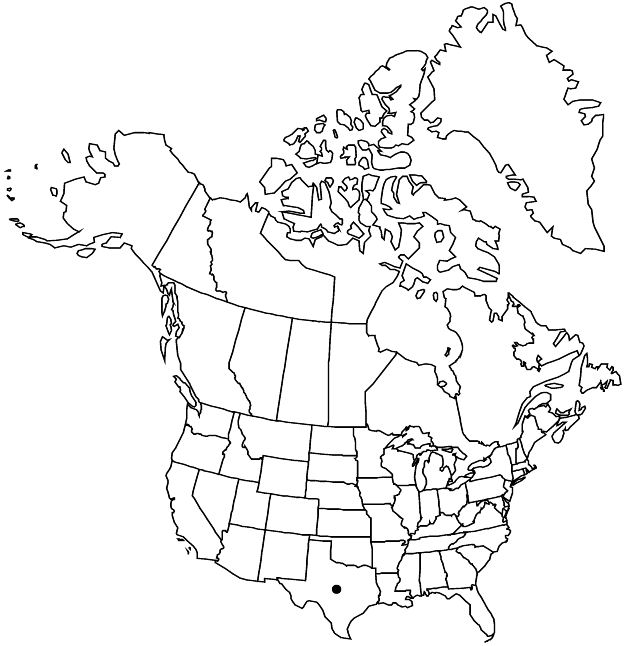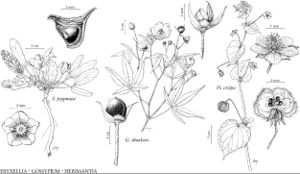Fryxellia pygmaea
Brittonia 26: 95. 1974.
Plants 10–15 cm diam., cespitose; growing points 1+, stems branched below soil surface. Leaf blades to 4 × 2.4 cm. Pedicels not articulated, 10–20 mm. Flowers: calyx subrotate, to 12 mm, to 17 mm in fruit, lobes to 7 × 8 mm (9 × 10 mm in fruit), papery, folded and slightly keeled along each commissural vein; corolla to 15 mm, exceeding calyx; staminal column to 4 mm. Schizocarps 9–10 mm diam., closely invested by calyx; mericarps pale brown, to 3 × 5 mm exclusive of dorsal spurs, spurs to 2 mm. Seeds 2 mm. 2n = 16.
Phenology: Flowering apparently summer.
Habitat: Dry, open slopes
Elevation: 1300 m
Distribution

Tex., Mexico (Coahuila).
Discussion
Of conservation concern.
The distribution of Fryxellia pygmaea in the flora area is not known. The type collection (the only collection known from the flora area) was made by Captain John Pope in 1854. It was taken on his survey route from Preston, Grayson County, on the Red River of Texas, southwest to the Pecos River and then nearly west to the valley of the Rio Grande near El Paso and Doña Ana, New Mexico.
Fryxellia pygmaea is in the Center for Plant Conservation’s National Collection of Endangered Plants.
Selected References
None.
